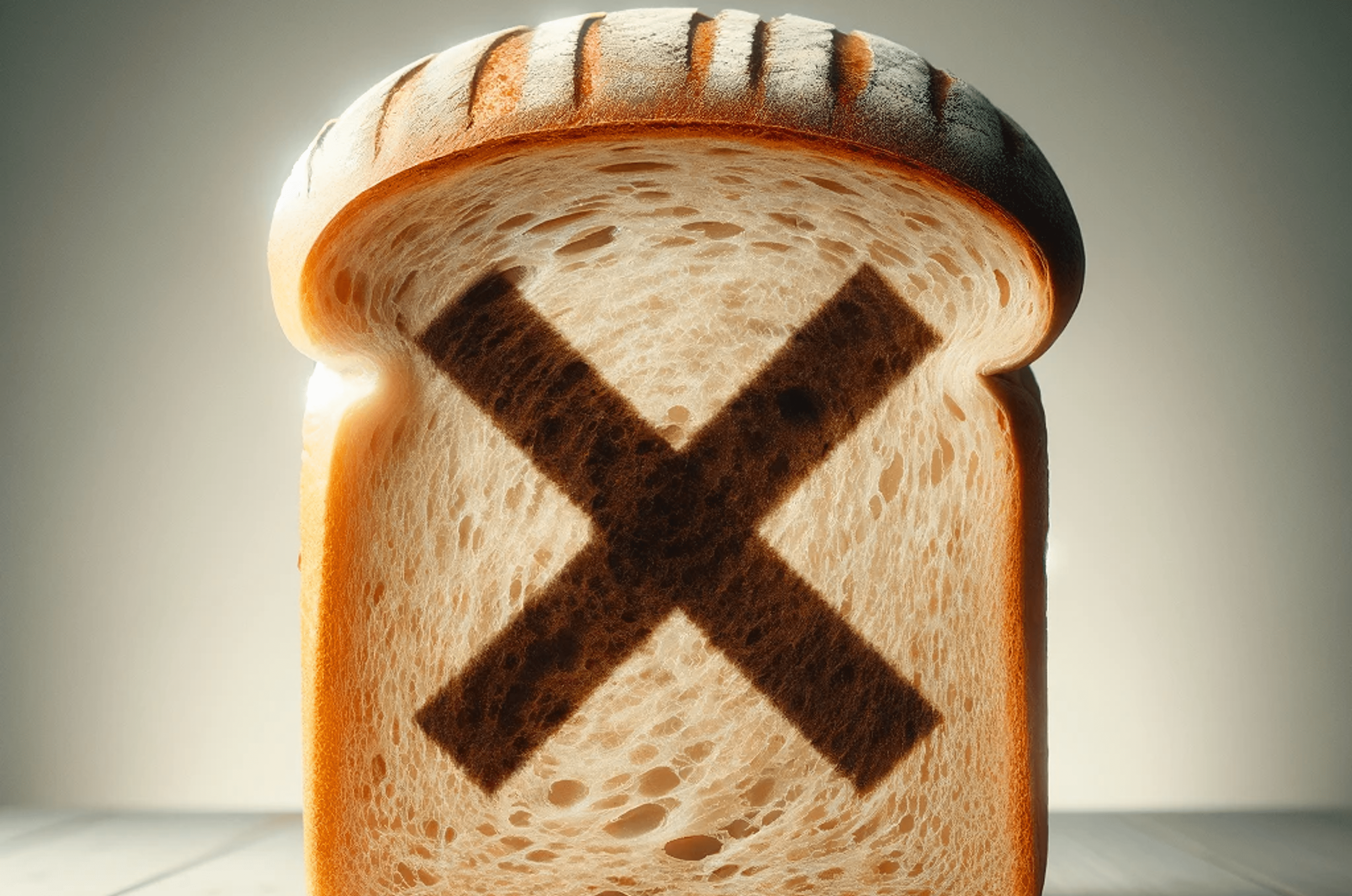What Happens If You Stop Eating Bread for 14 Days?(not what you think)

Understanding the Role of Bread in the Diet
Bread, a staple in many diets worldwide, possesses a range of nutrients that contribute significantly to the overall daily dietary intake. It's made by baking a mixture of flour (usually wheat), water, yeast, and salt, although its nutritional profile often varies based on the type of flour used and any additional ingredients.
Nutritional profile of bread
Whole wheat bread, for example, is a good source of complex carbohydrates. It provides energy that our bodies need for physical activities and brain function. It is also a provider of dietary fiber, which promotes healthy digestive systems and contributes to feelings of fullness, hence reducing the tendency to overeat.
In addition to carbohydrates and fiber, whole wheat bread contains substantial amounts of essential minerals such as iron, magnesium, and zinc. It also contains B vitamins, particularly B1, B2, B3, and folate, which are crucial for energy metabolism and nervous system function.
However, it is essential to note that most commercially produced bread types, including white bread, are often made with refined grains. These have been processed to remove the bran and germ, which drastically reduces the fiber and nutrient content.
Common consumption patterns of bread
In many Western societies, bread is a common component of meals in various forms. For instance, it's used for sandwiches at lunch, as an accompaniment for soups and salads, or as toast for breakfast.
Due to its versatility and convenience, bread consumption can be quite high. However, as bread is often consumed with spreads, deli meats, or cheeses, this can significantly increase the daily intake of saturated fats, sodium, and added sugars. These factors combined with the potential overconsumption of refined grains could potentially contribute to health risks over time.
Potential health effects of bread
While bread can be a part of a healthy diet when consumed in moderation and as a part of a balanced diet, consuming excessive amounts, especially of bread made with refined grains, can contribute to health issues. High intake of refined grains has been associated with an increased risk of obesity, heart disease, and type 2 diabetes.
On the other hand, consumption of whole grain bread can provide significant health benefits. Whole grains contain all parts of the grain — the bran, germ, and endosperm. Foods made from these grains are rich in fiber and help to manage weight, reduce risk of heart disease, and support healthy digestion.
In conclusion, the role of bread in the diet truly depends on the type of bread one consumes and in what amounts. For a healthy diet, focus should be placed more on whole grain bread in appropriate serving sizes, paired with other nutrient-dense foods.
Immediate and Short-term Effects of Eliminating Bread
While bread is a staple in many diets around the world, removing it from one's diet can lead to a number of immediate and short-term effects. As you embark on any dietary change, and specifically one that involves eliminating a food item such as bread, it's important to understand how your body might respond.
First, let's look at changes in carbohydrate intake and energy levels. Bread is a significant source of carbohydrates, which are the body's primary energy source. When you stop consuming bread, the carbohydrate intake drops significantly.
While the body can adapt to use other energy sources like proteins and fats, this transition may take some time. During this period, you might feel tired, experience brain fog, and crave foods high in sugar or carbs.
However, these symptoms are typically temporary and might subside as your body adjusts to its new energy sources.
Next, there is the impact on weight and body composition. By eliminating bread from your diet, you might observe some weight loss, especially if bread consisted of a considerable portion of your daily calorie intake.
This weight loss in the short run is primarily due to the reduced calorie intake and loss of water weight as carbohydrates cause water retention in the body. However, this does not mean all lost weight will be from fat, some of it could be from muscle mass. This effect will largely depend upon the composition of the rest of your diet and whether or not you're getting ample protein and other nutrients.
Lastly, let's consider digestive system responses. Your digestive system may also experience some changes when you stop eating bread, especially if you have been consuming it frequently.
Bread, particularly white bread, can slow down the digestive process because it's relatively low in fiber. On the other hand, whole wheat and other types of high-fiber bread can help maintain bowel regularity. By removing bread from your diet, you might experience changes in your bowel habits, including constipation or irregular bowel movements, if you don't replace this dietary fiber from other sources.
In conclusion, while there can be beneficial effects such as potential weight loss and a decrease in processed carbohydrate intake from eliminating bread, these changes should be balanced with considerations around energy levels, nutrient intake, and digestion. Ultimately, any dietary changes should be discussed with a health professional to ensure a balanced and sustainable approach. After all, our aim is to promote long-term health and not short-term solutions.
Long-term Considerations and Healthy Eating Habits
Removing bread from your diet for 14 days may lead to a few noticeable changes in the metabolic processes, as well as few physical ones. However, it's important to understand that these changes are temporary and largely depend on the type of bread you were consuming previously. This sudden change in diet may shed a few pounds in the short run, but it's critical to consider long-term implications and maintain a balanced, sustainable diet.
Maintaining a Balanced Diet Without Bread
While bread might have been a significant source of carbohydrates in your diet, it's entirely feasible to maintain a balanced and healthy diet without it. This involves ensuring that your body still receives the necessary macro and micronutrients.
Primarily, carbohydrates, which bread typically supplies, can be compensated for by consuming other foods such as fruits, vegetables, legumes, beans, and whole grains like oatmeal, quinoa, or brown rice. These foods are not only rich in carbohydrates but also are a great source of fiber, vitamins, and antioxidants.
For protein, turning to lean meats, dairy, or plant-based alternatives would be beneficial. Finally, consider foods with healthy fats, like avocados, nuts, and seeds, to keep your heart healthy and to provide you with sustained energy.
Alternatives to Bread for a Varied Diet
Variety is the spice of life, and it's no different with food. When eliminating bread, you can try multiplicity of nutritious alternatives that will keep you satiated and provide the crucial nutrients your body needs:
- Whole grain tortillas: A rich source of fiber and they have less added sugar compared to most types of bread.
- Lettuce wraps: Low in calories and carbs while providing essential vitamins and minerals.
- Roasted sweet potatoes: High in vitamin A and fiber, and they can be used in a variety of dishes.
- Cauliflower 'bread': Offers a low-carb alternative with a high dose of vitamin C.
Reintroducing Bread and Other Carbohydrates
If you wish to reintroduce bread into your diet after the 14-day period, it's advised to proceed gradually, starting with healthier varieties of bread, such as whole grain or sourdough. Keep an eye on portion sizes and be aware that bread should not be the only source of carbohydrates in your diet.
Other nutritious sources of carbohydrates include fruits, vegetables, and whole grains, and should form a significant part of your daily diet. Remember, all food is considered healthy when eaten in moderation. It's about crafting a balanced diet that provides your body with all the required nutrients on a daily basis, bread or no bread.
Balanced nutrition is key to sustainable health. A diet diverse in colors, flavors, and nutrients can not only provide you with essential macronutrients but also ensure better overall physical and mental wellbeing.
In Summary
In this blog post, we've discussed the role of bread in the diet, the potential health effects of excessive bread consumption, and the immediate and short-term impacts of eliminating bread from your diet. Bread, especially whole wheat, is a significant source of complex carbohydrates, dietary fiber, essential minerals, and B vitamins. However, many commercially produced bread types are made with refined grains, which have lower fiber and nutrient content.
Excessive consumption of bread made with refined grains can lead to health risks like obesity, heart disease, and type 2 diabetes. On the other hand, whole grain bread can provide significant health benefits when consumed in moderation. Removing bread from your diet may cause temporary changes in carbohydrate intake, energy levels, weight, and digestion.
For long-term considerations, the post emphasizes maintaining a balanced diet and introducing alternatives to bread. Instead of bread, you can consume other carbohydrate-rich foods like fruits, vegetables, legumes, beans, and whole grains. Also consider bread alternatives like whole grain tortillas, lettuce wraps, roasted sweet potatoes, and cauliflower 'bread'.
Reintroducing bread into your diet should be gradual and mindful of portion sizes. Remember, the goal is to achieve a balanced diet rich in nutrients for sustainable health, whether you choose to eat bread or not.
Plan of Action
Consider these action steps to implement the information provided:
- Assess your Bread Consumption: Look at your current diet and notice how much bread you're consuming, the type of bread, and what you typically eat with it. Remember, whole grain breads are more beneficial.
- Moderation is Key: If you're consuming excessive amounts of bread, especially bread made with refined grains, consider reducing your consumption.
- Explore Alternatives: Try alternatives to bread. This doesn't mean only "bread alternatives" but also other sources
of carbohydrates such as fruits, vegetables, whole grains and legumes. 4. Seek Nutrition Balance: Regardless of whether you continue to eat bread or not, always aim for a balanced diet that provides all the essential nutrients your body needs. 5. Listen to Your Body: Pay attention to how your body responds to changes in your diet. Every body is unique, and what works for one person may not work for another. 6. Medical Consultation: Always consult with a dietitian, nutritionist or health professional before making significant diet changes. They can provide personalized advice based on your individual health situation and needs.
Remember, small changes can lead to big health benefits over time. The goal is to establish sustainable habits that promote overall health. Healthy living isn't about short-term changes, it's about long-term lifestyle adjustment.
![Does a 400 and 600 Calorie Diet Plan Help Weight Loss?[ANSWERED]](https://img.imageboss.me/onestep/width/828/format:auto,quality:80/assets/site/blog/does-a-400-and-600-calorie-diet-plan-help-weight-loss.png)
![How Many Calories Does 10,000 Steps Burn? [ANSWERED]](https://img.imageboss.me/onestep/width/828/format:auto,quality:80/assets/site/blog/how-many-calories-does-10000-steps-burn.png)









